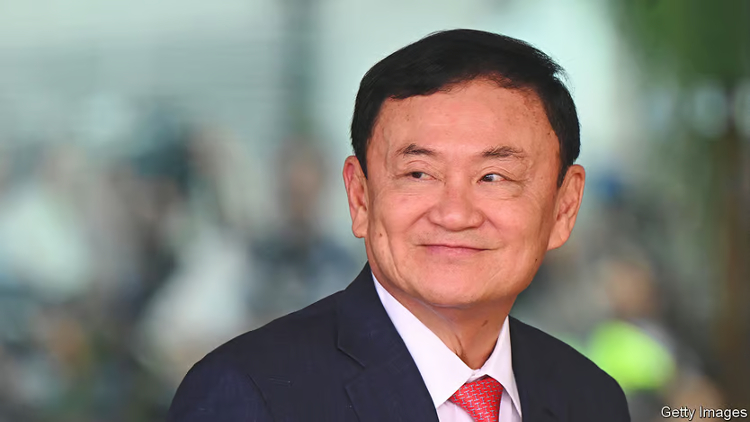
Thaksin Shinawatra’s private jet landed in Bangkok at 9am this morning, ending fifteen years of the former prime minister’s self-imposed exile. “It’s time for me to be with the Thai people,” Thaksin told Nikkei Asia, before boarding his flight to Thailand. He was taken from the airport to the Supreme Court, where his eight-year sentence for corruption and abuse of power was confirmed, though his voluntary return suggests that he is confident of a royal pardon. (His first act after walking out of the airport terminal was a performative prostration before a portrait of King Rama X.)
Thaksin has been the single most influential figure in Thai politics over the past two decades. In 2001, he won the country’s first landslide election victory, and he became the first elected PM to serve a full term in office. The protest movements that have polarised contemporary Thai politics are defined entirely by their stances on Thaksin and his regime: the People’s Alliance for Democracy started its campaign after he sold his stake in Shin Corp., the United Front for Democracy Against Dictatorship protests escalated when his assets were frozen, and the People’s Democratic Reform Committee opposed a plan to vacate his corruption conviction.
Thailand’s military and royalist establishment has pulled out all the stops to eradicate Thaksin’s legacy, to no avail. The PAD and PDRC protests paved the way for coups in 2006 and 2014, respectively. The Constitutional Court dissolved three of his proxy parties: Thai Rak Thai, the People Power Party, and Thai Raksa Chart. Despite all this, parties funded by Thaksin won every election from 2001 to 2019, and he has hand-picked four prime ministers: Samak Sundaravej, Somchai Wongsawat, Yingluck Shinawatra — and now Srettha Thavisin, who won a parliamentary vote this afternoon. Better the devil you know: after trying and failing to remove Thaksin, the military has struck a deal with him instead, to prevent the election winners, Move Forward, from assuming office.
Thaksin has been the single most influential figure in Thai politics over the past two decades. In 2001, he won the country’s first landslide election victory, and he became the first elected PM to serve a full term in office. The protest movements that have polarised contemporary Thai politics are defined entirely by their stances on Thaksin and his regime: the People’s Alliance for Democracy started its campaign after he sold his stake in Shin Corp., the United Front for Democracy Against Dictatorship protests escalated when his assets were frozen, and the People’s Democratic Reform Committee opposed a plan to vacate his corruption conviction.
Thailand’s military and royalist establishment has pulled out all the stops to eradicate Thaksin’s legacy, to no avail. The PAD and PDRC protests paved the way for coups in 2006 and 2014, respectively. The Constitutional Court dissolved three of his proxy parties: Thai Rak Thai, the People Power Party, and Thai Raksa Chart. Despite all this, parties funded by Thaksin won every election from 2001 to 2019, and he has hand-picked four prime ministers: Samak Sundaravej, Somchai Wongsawat, Yingluck Shinawatra — and now Srettha Thavisin, who won a parliamentary vote this afternoon. Better the devil you know: after trying and failing to remove Thaksin, the military has struck a deal with him instead, to prevent the election winners, Move Forward, from assuming office.
